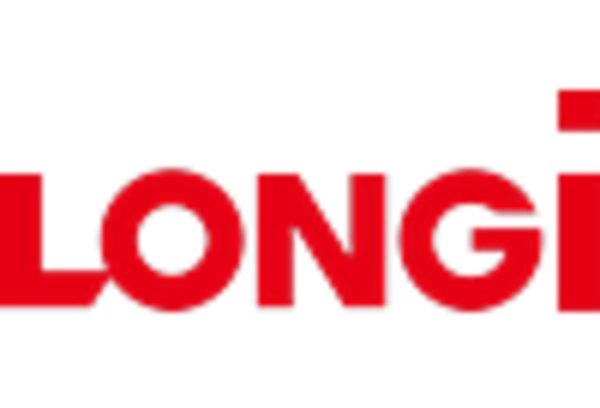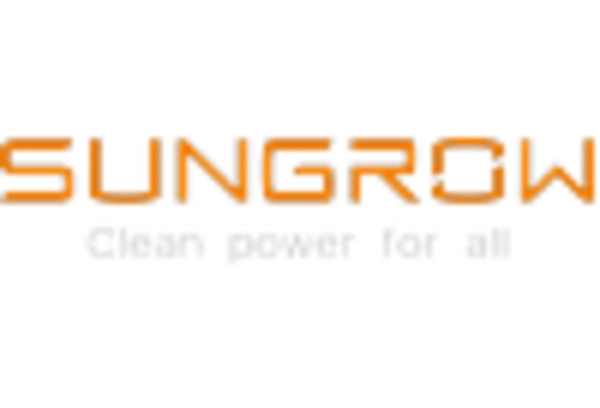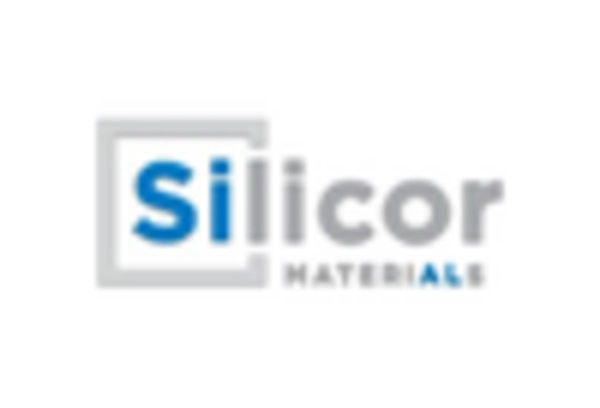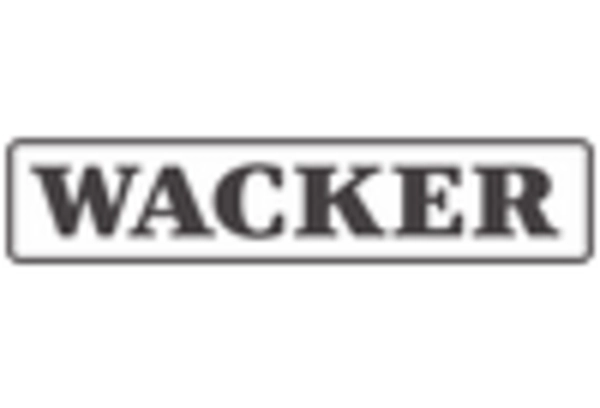Market Analysis
In-depth Analysis of Polysilicon Market Industry Landscape
The polysilicon market, a critical segment in the solar and semiconductor industries, is characterized by dynamic factors that significantly influence its trajectory. Understanding these market dynamics is essential for industry stakeholders and participants to navigate challenges and capitalize on opportunities within this specialized market.
Solar Energy Growth:
The dynamics of the polysilicon market are intricately linked to the growth of the solar energy sector, where polysilicon serves as a fundamental material in photovoltaic cells. Increasing investments in solar projects, government incentives, and the push for renewable energy contribute to the rising demand for polysilicon. Photovoltaic Module Demand:
Polysilicon is a key component in the production of photovoltaic modules used in solar panels. Market dynamics are influenced by trends in the photovoltaic industry, including advancements in solar technology and increased adoption of solar power. Semiconductor Industry Requirements:
The polysilicon market is also essential for the semiconductor industry, where high-purity polysilicon is used in the manufacturing of electronic components. Demand from the semiconductor sector impacts market dynamics, with factors such as technological advancements and the growth of electronic devices influencing the market. Technological Advances in Polysilicon Production:
Ongoing technological advancements in polysilicon production contribute to market dynamics. Innovations in manufacturing processes, such as the development of upgraded Siemens processes or fluidized bed reactor technologies, impact efficiency and cost-effectiveness in polysilicon production. Supply and Demand Dynamics:
The dynamics of the polysilicon market are influenced by supply and demand imbalances. Fluctuations in demand, oversupply situations, or disruptions in production can impact polysilicon pricing and market stability. Trade Policies and Tariffs:
The polysilicon market is subject to global trade dynamics, with tariffs and trade policies affecting the international flow of polysilicon. Trade tensions and policy changes can impact market dynamics by influencing pricing and market access. Energy Transition and Government Policies:
Government policies promoting energy transition and the reduction of carbon emissions impact the dynamics of the polysilicon market. Incentives, subsidies, and regulatory frameworks supporting renewable energy contribute to the growth of the polysilicon market. Cost Competitiveness and Manufacturing Efficiency:
The dynamics of the polysilicon market are influenced by cost competitiveness and manufacturing efficiency. Continuous improvements in production processes and cost-effective manufacturing contribute to the market's competitiveness. Emerging Technologies and Alternative Materials:
Market dynamics are shaped by the emergence of alternative materials and technologies in the solar and semiconductor industries. Competition from new materials or innovative solar cell technologies can impact the demand for traditional polysilicon. Environmental and Sustainability Considerations:
Increasing emphasis on environmental sustainability influences the dynamics of the polysilicon market. Companies adopting sustainable practices, such as reducing energy consumption in production or using recycled materials, respond to consumer preferences and market trends. Investments and Capacity Expansions:
Market dynamics are influenced by investments in new production facilities and capacity expansions. Expansion plans and increased production capabilities impact the overall supply chain and market dynamics. Geopolitical Factors:
Geopolitical factors such as trade tensions, geopolitical conflicts, or international relations impact the global polysilicon market. Political stability and diplomatic relations can affect market dynamics by influencing trade flows and market access.
















Leave a Comment